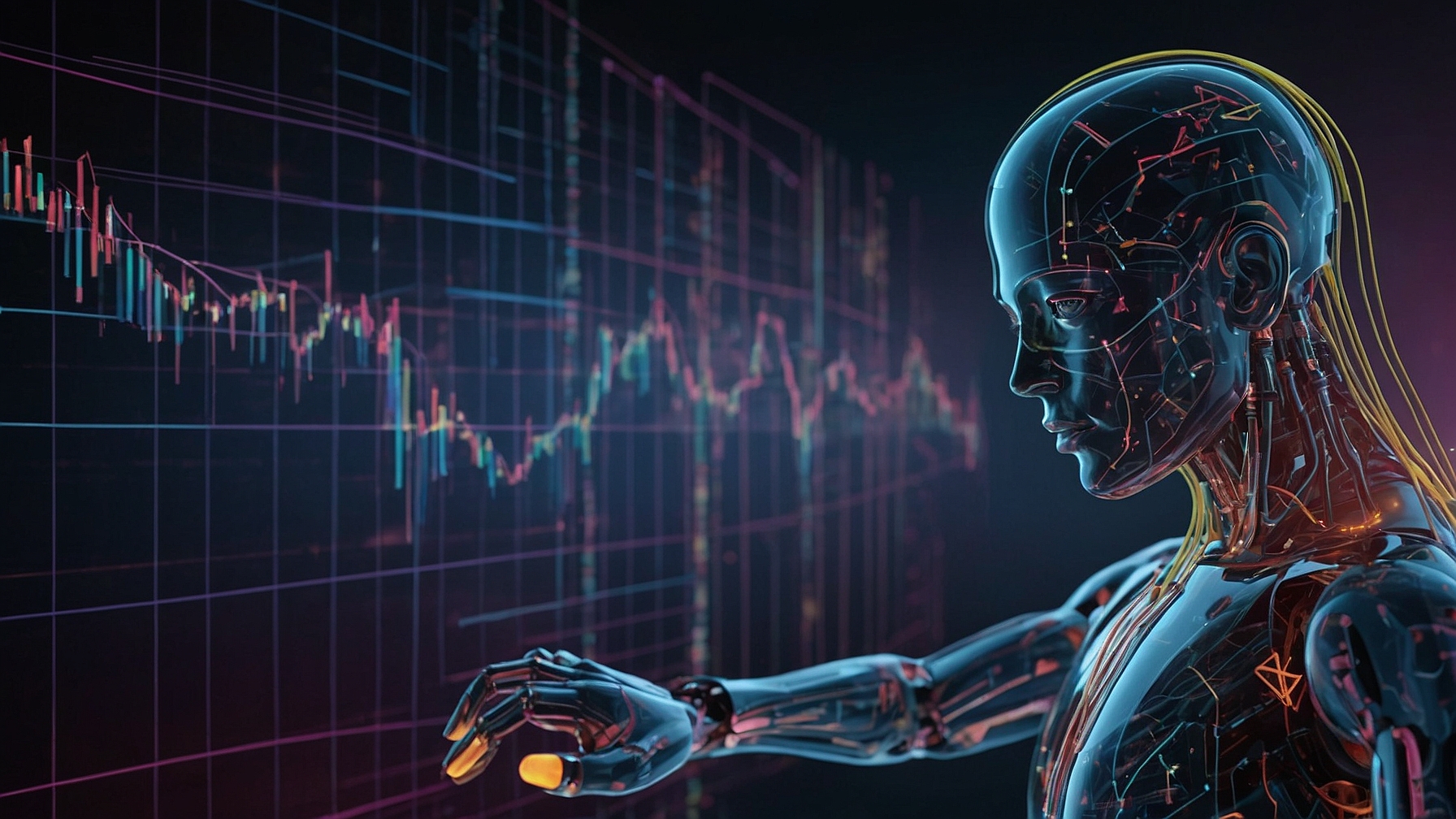Artificial Intelligence (AI) is no longer a futuristic concept; it is transforming industries across the world, and the financial sector is no exception. From stock trading to credit scoring, AI is increasingly shaping the way financial markets operate. While AI offers immense potential for revolutionizing the industry, it also brings with it a set of risks that must be carefully considered. In this article, we will explore both the revolutionary and risky aspects of AI in financial markets and how it could reshape the future of finance.
The Rise of AI in Financial Markets
AI has already begun to revolutionize financial markets in several key areas. One of the most prominent applications of AI in finance is algorithmic trading. Algorithmic trading uses computer programs powered by AI to analyze market data, identify patterns, and make buy or sell decisions at speeds much faster than human traders. This can lead to higher efficiency, lower costs, and more accurate predictions.
Additionally, machine learning, a branch of AI, has been used to develop predictive models that can analyze vast amounts of financial data, helping traders and investors make more informed decisions. For example, AI models can analyze news headlines, social media trends, and historical market data to predict stock price movements or even cryptocurrency fluctuations.
Robo-advisors, which use AI to provide financial advice to individuals, are also gaining popularity. These AI-powered platforms offer low-cost, automated investment advice and portfolio management, making it easier for retail investors to access professional-grade financial services.
The Potential for Revolution
AI’s role in financial markets has the potential to bring about significant improvements in the way markets operate. The most obvious benefit is efficiency. AI can process massive amounts of data at a much faster rate than humans, allowing for quicker decision-making and better trade execution. As a result, financial institutions can reduce costs and increase their profits by leveraging AI technologies.
Moreover, AI has the power to make markets more predictable. By analyzing historical data, AI can identify trends and make more accurate predictions about future market movements. This could potentially reduce the volatility of financial markets, which has long been a major source of concern for investors. If AI can predict price movements more reliably, it could lead to more stable and sustainable growth in financial markets.
AI can also improve risk management. Financial institutions can use AI to assess the risk of various investments more effectively by analyzing not just historical data, but also real-time data from multiple sources. This allows for better hedging strategies and more informed decision-making regarding risk exposure. With AI’s ability to predict market crashes or downturns, institutions could be better prepared to mitigate losses.
The Risks of AI in Financial Markets
Despite its potential to revolutionize finance, AI also comes with significant risks that could lead to unintended consequences. One of the biggest concerns is the issue of market manipulation. AI algorithms, if not properly regulated, could be used to exploit market inefficiencies or manipulate stock prices. This could lead to unfair market conditions and harm retail investors who do not have access to the same tools.
Another major risk is the lack of transparency in AI decision-making processes. AI models, especially those based on deep learning, often operate as “black boxes,” meaning that their decision-making is not always understandable or explainable. This can create issues in the financial industry, where transparency and accountability are crucial. If AI models make wrong decisions, it could be difficult to trace the cause of the error or understand how the model arrived at its conclusions.
Moreover, AI’s ability to make decisions at high speeds could create a lack of human oversight. In high-frequency trading, where decisions are made in milliseconds, AI systems could potentially cause sudden market crashes or amplify existing market instability. In 2010, for example, a flash crash occurred in the U.S. stock market, where AI trading algorithms triggered a massive, rapid sell-off of stocks. While regulators are working to implement safeguards, the risk of AI-induced volatility still exists.
AI could also exacerbate job displacement in the financial sector. As AI systems become more capable of performing tasks traditionally done by humans—such as trading, advising, and analyzing—there is a risk that many jobs in the finance industry could be replaced by machines. While new jobs may emerge in AI development and data science, the transition could lead to economic challenges for workers whose skills are no longer in demand.
Striking a Balance: Regulation and Oversight
To maximize the benefits of AI in financial markets while minimizing the risks, careful regulation and oversight are necessary. Governments and financial regulators must work to ensure that AI systems are transparent, accountable, and used responsibly. This includes setting standards for algorithmic trading, enforcing fair practices, and creating frameworks for understanding and explaining AI decisions.
There is also a need for a human-AI partnership. While AI can enhance decision-making, human expertise is still needed to ensure that decisions are ethical, transparent, and in line with broader economic goals. A hybrid approach that combines AI’s capabilities with human judgment could be the key to balancing the revolution and risk of AI in financial markets.
Conclusion
AI’s impact on financial markets is undeniable, offering both revolutionary benefits and potential risks. It has the power to enhance efficiency, predictability, and risk management, but it also introduces concerns related to market manipulation, transparency, and job displacement. By implementing effective regulation and promoting responsible use, we can harness the power of AI to improve financial markets while minimizing the risks. The future of AI in finance may be uncertain, but with careful oversight, it could pave the way for a more efficient and stable financial world.





